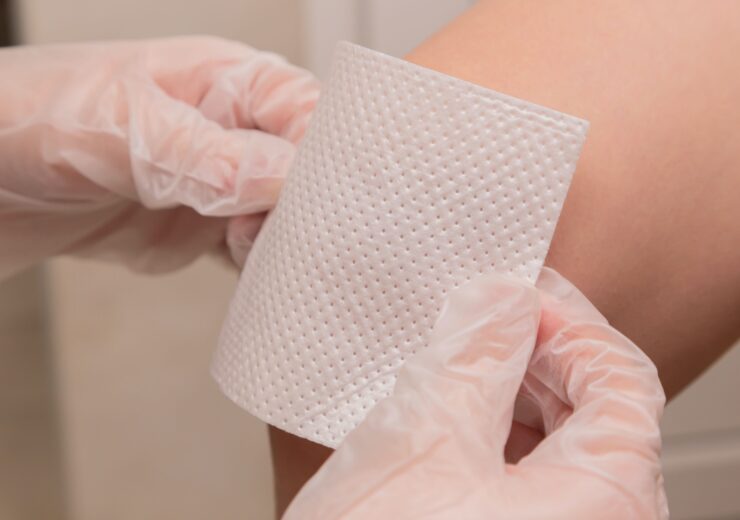The goal of the current study was to compare OCM and Omeza Skin Protectant's antibacterial and wound-healing properties with a comparator and a control in a porcine wound model

OCM is a proprietary drug/device candidate to promote the growth of new tissue for wound management. (Credit: Diana Polekhina on Unsplash)
Regenerative skincare company Omeza said that its OCM wound platform has shown antibacterial activity in a porcine wound model, outperforming a comparator treatment and a control group.
OCM is a proprietary drug/device candidate that combines pharmaceutical-grade chemicals with peptides from cold-water fish. It is intended to create an absorbable matrix that integrates into the wound bed to promote the growth of new tissue.
The goal of the current study was to compare OCM and Omeza Skin Protectant’s antimicrobial and wound-healing effects with a comparator and a control in a porcine wound model.
During the study, wounds were infected with methicillin-resistant staphylococcus aureus (MRSA) and pseudomonas aeruginosa (PA). Subsequently, these wounds underwent treatment using OCM alone, OCM with Omeza Skin Protectant, a silver dressing, or debridement alone.
In addition to other measurements, all wounds were evaluated for bacterial counts on days four, eight, and 12.
The in vivo data demonstrated that OCM significantly lowered MRSA and PA bacterial counts.
On day 12, the wounds treated with OCM alone showed the lowest MRSA and PA counts among all treatments at all time points.
Additionally, OCM alone and OCM plus Omeza Skin Protectant expedited the formation of new tissue in MRSA-infected wounds in comparison to the silver dressing and the control group.
Omeza chief scientific officer Suzanne Bakewell said: “Infections are a leading cause of stalled wounds, with bacteria in biofilms estimated to be involved in more than 60 % of chronic wounds.
“Limiting bacterial growth is a critical therapeutic aim in treating advanced wounds, but complicating factors often prevent success.
“OCM does not confer these complications, such as antibiotic resistance, cytotoxicity, or viral transmission.”
Currently, the regenerative skincare company is assessing its platform in three clinical trials among patients suffering from diverse wound etiologies, diabetic foot ulcers, and venous leg ulcers in a real-world setting.
